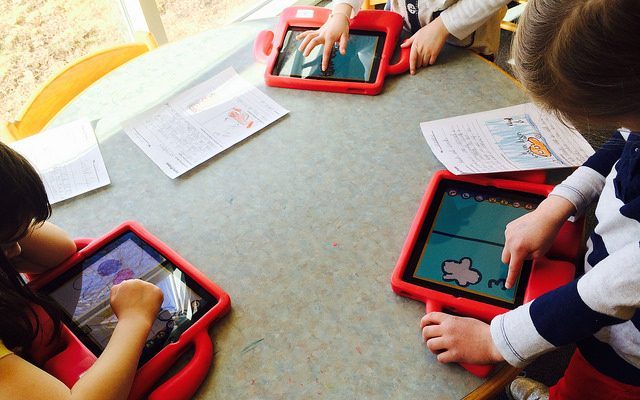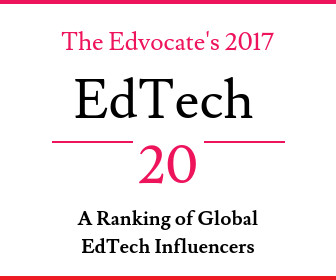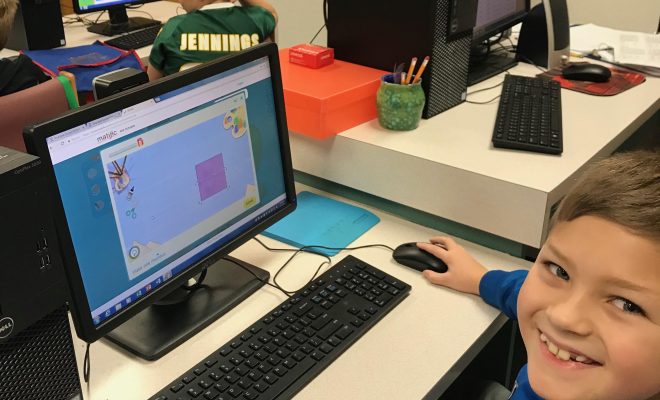The A-Z of EdTech Literacy: Letters S-W

Click here to access all of the articles in this series. In this series, we are discussing all of the terms, concepts, and technologies that you need to know to be literate in all thinks edtech. In the previous article, I introduced letters N-P and in the part of this series, I will discuss letters S-W.
Sensory enhancers. Depending on developmental patterns, children may need to learn differently than their peers. Instead of ABCs and numbers first, a child with language delays may benefit from bright pictures or colors to learn new concepts. Sensory enhancers may include voice analyzers, augmentative communication tools, or speech synthesizers. With the rapid growth of technology in the classroom, these basic tools of assistive technology are seeing great strides.
Screen readers. This technology is slightly different from text-to-speech. It simply informs students of what is on a screen. A student who is blind or visually impaired can benefit from the audio interface screen readers provide. Students who otherwise struggle to glean information from a computer screen can learn more easily through technology meant to inform them.
Simulations. Simulations are akin to video games, which automatically make them more attractive to your students. There are many types of simulations that can help instruct children, teens, and college students. For example, there are flight simulators that can be used to help highlight different areas, such as the historic flight of Amelia Earhart across the Atlantic Ocean and various Physics concepts. Simulations can be made as presentations or be provided on different devices
Social Networking refers to the ability and platforms that allow users to interact online, often in real time. Users can conduct live chats, and create or leave comments on blogs or discussion groups.
Software. refers to the programs and applications that make use of the hardware to direct the functions of a computer. Software allows users to give instructions to the computer hardware and receive feedback.
Speech-to-text options. This technology is making mainstream waves through its use in popular cell phones like the Android-platform Razr M. While it is a convenience tool for people without disabilities, speech-to-text provides a learning advantage for students who have mobility or dexterity problems or those who are blind. It allows students to speak their thoughts without typing and even navigate the Internet. speech-to-text options can also “talk back” to students and let them know about potential errors in their work.
Time-management tools. These tools are variations on calendar software. They can be used to schedule your appointments, or you may want to take advantage of more complex features. Some tools can be viewed online, affording access for more than one student at a time. A teacher can arrange appointments or make a note of due dates for assignments so that all students in a class can keep track of such details. Most of these tools allow the option to put some information in private mode, too, so the administrator can choose which calendars people can see and which cannot. Most of these tools include a feature allowing teachers to arrange meetings and groups.
Technology. refers to use and application of technical means, drawing from advances in various fields of science and engineering, to change a person’s interaction with the physical world.
Virtual classrooms. Are a brand new technology that’s quickly spreading to teacher education programs across the nation. The concept is a bit like a flight simulator that a pilot might use before getting into a real plane. Teachers are placed in a virtual classroom full of virtual students and must teach as if they were really in the classroom.
Virtual laboratories. These Web applications give students the chance to perform physical science experiments over and over, from anywhere with Internet access. As in a physical lab, the performance of the student will determine the results of the experiment. While not a replacement for all in-lab exercises, the virtual version can provide extra practice and guidance. There is no pressure to “get it right” on the first run, and mistakes are allowable because the technology lends itself to no-cost repetition. It also may prove a smart solution to rekindling the American public’s interest in the scientific.
Virtual reality. refers to a computer-simulated environment, which may be a simulation of the real world or an imaginary world.
Wearable technology. Can be used for a variety of purposes. Most common are fitness trackers, which have taken over the tech world. Fitness trackers, like the popular FitBit, are more than just fancy pedometers. While they do track the number of steps you take, many are stepping up their game and keeping track of heart rate, calories burned, and even sleep patterns. These advanced features have made fitness trackers a trend on college campuses and elsewhere.
Wiki. is a collaborative website, which can be directly edited by anyone with access to it.
Conclusion
Well, that’s it for my guide. Take the time that you need to become familiar with all the buttons and wires of the modern age, and you’ll become a resource as invaluable to your students as Wi-Fi. What concepts or terms did I leave out?





